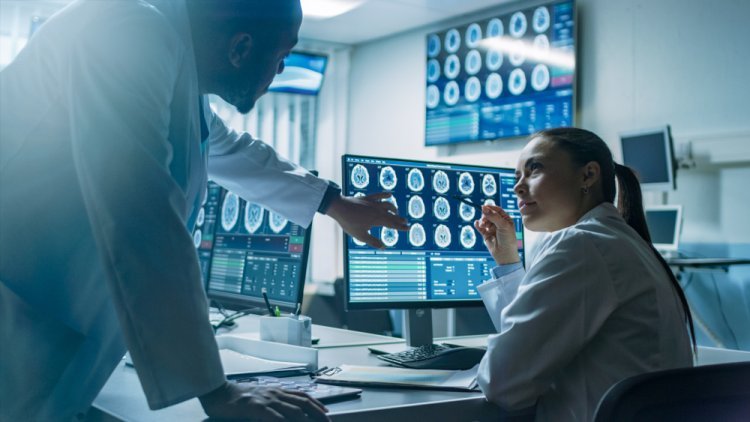The Role of Genetics in Brain Tumors
Explore the crucial role of genetics in the development and treatment of brain tumors. Understand how inherited conditions and mutations influence tumor growth, and how genetic insights are driving advances in targeted therapies and precision medicine. Consult with a leading Brain Tumor Specialist in Hyderabad for cutting-edge care tailored to your genetic profile.

The realm of medicine has long been intrigued by the influence of genetics on disease, and brain tumors are no exception. Understanding the genetic underpinnings of brain tumors can provide critical insights into their behavior, prognosis, and treatment options. For individuals seeking expert guidance and treatment, consulting a Brain Tumor Specialist in Hyderabad can provide access to specialized care and advanced genetic profiling techniques that help tailor treatment strategies to individual patient needs.
Understanding Genetic Factors in Brain Tumors
Brain tumors, like other types of cancer, arise when normal cells acquire mutations that cause them to grow and divide uncontrollably. These mutations can be inherited (germline) or acquired (somatic). Germline mutations are present in the egg or sperm and are passed from parents to offspring, affecting every cell in the body. In contrast, somatic mutations occur at some point during a person's life and are present only in tumor cells.
While most brain tumors are sporadic, meaning they develop due to somatic mutations without any clear hereditary pattern, a small percentage can be linked to inherited genetic conditions. For example, conditions such as Neurofibromatosis type 1 and type 2, Von Hippel-Lindau disease, Li-Fraumeni syndrome, and Tuberous sclerosis complex are known to increase the risk of developing certain types of brain tumors.
Genetic Syndromes and Brain Tumors
Each of the aforementioned syndromes involves a mutation in a gene that normally helps regulate cell growth and ensures genetic stability. When these genes malfunction, it can lead to the uncontrolled cell growth characteristic of cancer. Here’s a brief overview of how each syndrome can influence brain tumor development:
-
Neurofibromatosis type 1 and 2 (NF1 and NF2): These conditions are caused by mutations in the NF1 and NF2 genes, respectively. NF1 is most commonly associated with the development of optic gliomas, while NF2 increases the risk of schwannomas and meningiomas.
-
Von Hippel-Lindau disease: This condition involves mutations in the VHL gene, leading to an increased risk of developing hemangioblastomas, which are tumors of blood vessel cells in the brain and spinal cord.
-
Li-Fraumeni syndrome: Caused by mutations in the TP53 gene, this syndrome greatly increases the risk of developing various types of cancer, including astrocytomas.
-
Tuberous sclerosis complex: Mutations in either TSC1 or TSC2 increase the risk of subependymal giant cell astrocytomas and other tumor types.
The Role of Somatic Mutations
In addition to hereditary factors, somatic mutations play a crucial role in the development of brain tumors. These mutations occur from environmental factors, lifestyle choices, or for reasons that remain poorly understood. Advanced genomic technologies now allow for the detailed analysis of these mutations within a tumor, helping to identify specific pathways that are altered in cancer cells. This information is invaluable for the development of targeted therapies.
Targeted Therapy and Precision Medicine
The field of precision medicine has grown significantly with our understanding of the genetic basis of brain tumors. By identifying specific genetic mutations and pathways that are altered in brain tumors, oncologists can use targeted therapies designed to specifically inhibit these pathways. For example, drugs like Bevacizumab have been used to target the VEGF pathway in glioblastoma, the most aggressive type of primary brain tumor.
Genetic Testing and Counseling
Given the potential for hereditary brain tumors, genetic counseling and testing are recommended for individuals with a family history of brain tumors or related syndromes. Genetic counseling provides patients and families with information about the risks of inherited conditions, the implications of genetic testing, and the preventive measures or treatments available.
Conclusion
The role of genetics in brain tumors is a complex but crucial area of study that has opened new avenues for diagnosis, treatment, and prevention. As we continue to unravel the genetic basis of these tumors, personalized medicine will play an increasingly important role in providing effective and tailored treatments. For those affected by or at risk of brain tumors, consulting with specialists like a brain tumor specialist in Hyderabad can provide not only the latest in treatment options but also a comprehensive approach to managing their condition based on the most advanced genetic insights available today.
What's Your Reaction?















